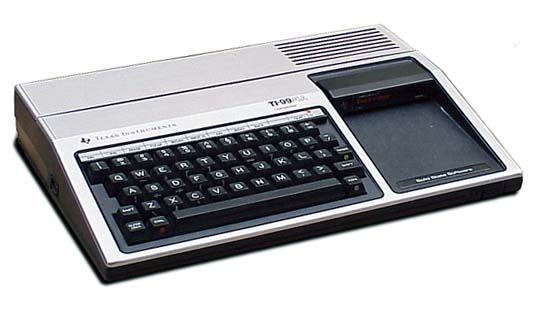Based on my old History of Cars post I decided to put together a similar history of My Computers. Most of these will be ones that I actually owned, but a couple are those that I just used heavily or have particular memories of (note that I didn't specify good or bad memories).
There is actually a decent amount of archaeological content in this, as most of the work I did on these infernal contraptions has been while studying or doing archaeology. Plus, computers have been a significant, if often under- or over-used part of the archaeological tool kit. There were a lot of papers and books in the 1970s and '80s on "Computers in Archaeology", many of them dealing with all the way cool analytical tools that would become available with the advent of mass storage and processing power. In many ways, a lot of it kind of dead-ended; like so many other methodological and theoretical toys that archaeologists became infatuated with over the years, many saw them as something that in and of themselves would revolutionize archaeology. And, in fact, they did, but not really in the way people thought. This actually mirrored my own evolution in my relationship to these things. That should become clear as the essay progresses. I'll do a few posts on this, so this will be a series. Since, you know, I can blab all day long about this geeky stuff.
This first one will have little archaeology in it, so feel free to skip.
First up, the TI-99:

My family bought one of these, for no apparent reason really, just that back then it was the thing to have. I did a fair amount of research before the purchase and it seemed to be a good value for the money. Technologically, it probably was. OTOH, we didn't have much use for it. We didn't do any sort of "business" applications on it (no word processing, spreadsheets, etc.) and I wasn't a big nerd yet so I didn't do any programming on it either. There were a couple of games that came with the machine, but those got old fast. It was really one of those things that a lot of people bought without really knowing why.
I still have one, though not the original. My Spousal Unit's mother acquired one (or had one?) that had mostly never been out of the box much. So it's sitting in a clost in the original box with a bunch of the original manuals and software titles. I heard they were going for a decent amount of money a while ago. I keep threatening to do something with it, though then as now I'm not sure what. About the only reasonable thing I can think of would be to use it to control a bunch of Christmas decorations but I'm probably too lazy to do that. Hence, it will probably sit in that closet until 2020 when there will be another revival and I'll yank it out and sell it for big bucks.
Riiiiiiight.
After that, I didn't own one until 1987 when I was in grad school. I was a computer science major as an undergrad before venturing into archaeology and back then we used mainframes or minis. EXCEPT for my very first class -- Structured Programming -- where we used some early PCs. We used Pascal as the language, which I still have a fondness for. I learned Pascal, machine and assembler, and some C. Most archys at the time were using Fortran since most of them learned their computing through engineering schools. I didn't even see Fortran until late in the '80s when I had to translate some old programs.
We used Digital's PDP-11 series for the most part. Usually through terminals (batch processing) but one semester they made us write a program using the old card readers. We had PDP-11/45's and 70's connected by the old phosphor green single-piece terminals. Ah, I remember signing up for time on them and having to go down there at like 11 at night to madly spend my allotted hour madly debugging what I'd written. And then we'd print it out on those old wide-page line printers that sounded like machine guns when they were ripping through pages and pages.
I eventually drifted out of comp sci because I wasn't all that enamored of computing in and of itself; I liked the programming process, but only if the end product was something that really interested me. And writing linked-list sorting algorithms didn't do it. Before I left I took another programming course (needed the credits) and got a 4.0 out of it, so it wasn't really for lack of talent. And it's paid off financially since statistical programming put me through grad school.
My advisor in grad school, Dr. Robert Wenke, was into "quantitative methods" which was why I went to Washington. In fact, the first two years I didn't get much of that. I remember we did some assignments on something called "the Cyber" which I absolutely hated with a white hot passion. I much preferred the Vax's: Vax1, Vax2, and Max. I actually saw Vax 1 and Max once; much smaller than I thought they'd be. Again, accessed via terminals, but these were either green or white phosphor. I used SPSS on it and a few other things. Not really anything heavy duty.
Er, I did use BBs a lot and discovered some games. Something like D&D was going on at the time -- sort of graphical; you maneuvered around the screen and it had character-based graphics. Can't remember the name of it offhand. And email, I discovered email then, too. This was like 1986-1987.
Wenke had a "portable" a couple of Kaypros. I don't recall using them much. But then I bought my first computer, which will be the next post.